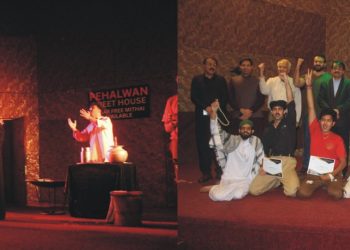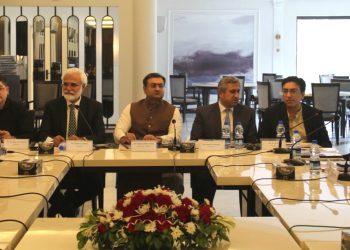In a strong condemnation, Pakistan has expressed its disapproval of the recent attack by Israeli forces on the city of Jenin on the western coast. Additionally, the Pakistani government has confirmed that the Swedish Minister of Foreign Affairs has lodged a protest regarding the desecration of the Holy Quran.
According to the spokesperson for the Foreign Office, discussions regarding the Pakistan-Afghanistan border, which is internationally recognized, will not be entertained. The government will make the final decision on Pakistan’s participation in the upcoming World Cup.
During a weekly briefing, Mumtaz Zahra Baloch, the spokesperson for the Foreign Office, reiterated that the Pakistan-Afghanistan border holds international recognition and any talks concerning it are off the table. Notably, barriers have been erected on the Afghan side, creating obstacles for cross-border movements. Swiss Foreign Minister Ignazio Cassis is scheduled to visit Pakistan Friday (today), signifying the importance of bilateral relations.
Zahra Baloch also provided updates on the tragic incident involving a boat accident in Greece. She revealed that the Greek authorities have completed the post-mortem examination of the 78 deceased individuals. Moreover, DNA samples of 15 Pakistani nationals have been successfully matched with the victims, confirming their identities. The incident has been verified through DNA and fingerprint matching. However, it remains uncertain how many Pakistanis were on the boat without proper documents and passports, as this information is not known to the Pakistani, Greek, or other governments.
Addressing the issue of blasphemy against the Holy Quran, the Foreign Office spokesperson affirmed the involvement of the Swedish Minister of Foreign Affairs. Pakistan stands in solidarity with the Swedish government’s stance against such acts and strongly condemns the Israeli attacks that have taken place in Jenin.
Meanwhile, Pakistan has reiterated its demand to the Indian government to put an end to the extrajudicial killings of civilians and the excessive use of force against the Kashmiri people in the Indian illegally Occupied Jammu and Kashmir (IIOJK). The Ministry of Foreign Affairs spokesperson, Mumtaz Zahra Baloch, addressed the media during a press briefing on Thursday, expressing concerns over the restrictions imposed by Indian authorities during the recent Eid celebrations.
According to Baloch, the joy of the festival was marred as the Indian occupying forces prevented the Kashmiri population from participating in the Eid festivities. Notably, the performance of Eid prayers was restricted at the historic Jamia Masjid and the central Eidgah in Srinagar. The spokesperson highlighted the ongoing house arrest of Mirwaiz Umar Farooq, a prominent Kashmiri leader, and the custodians of the Jamia Masjid since August 2019. This has prevented them from addressing Friday congregational prayers at the mosque for over 200 weeks.
Emphasizing Pakistan’s stance, Baloch urged the Indian authorities to release Mirwaiz Umar Farooq and lift the imposed restrictions, enabling Kashmiris to freely practice their religion. She further expressed solidarity with the Kashmiri youth leader, Burhan Muzaffar Wani, whose seventh martyrdom anniversary will be observed on July 8. Wani was among the numerous Kashmiri youths who fell victim to extrajudicial killings by Indian occupying forces.
Highlighting the significance of the Kashmiri people’s struggle for freedom, the spokesperson reiterated Pakistan’s demand for India to cease extrajudicial killings and refrain from using excessive force against the Kashmiri population.
This renewed call from Pakistan adds to the ongoing tensions between the two neighboring countries over the long-standing Kashmir dispute. The international community will be closely observing the developments and the response of the Indian government to these demands as the issue continues to impact regional stability.


















